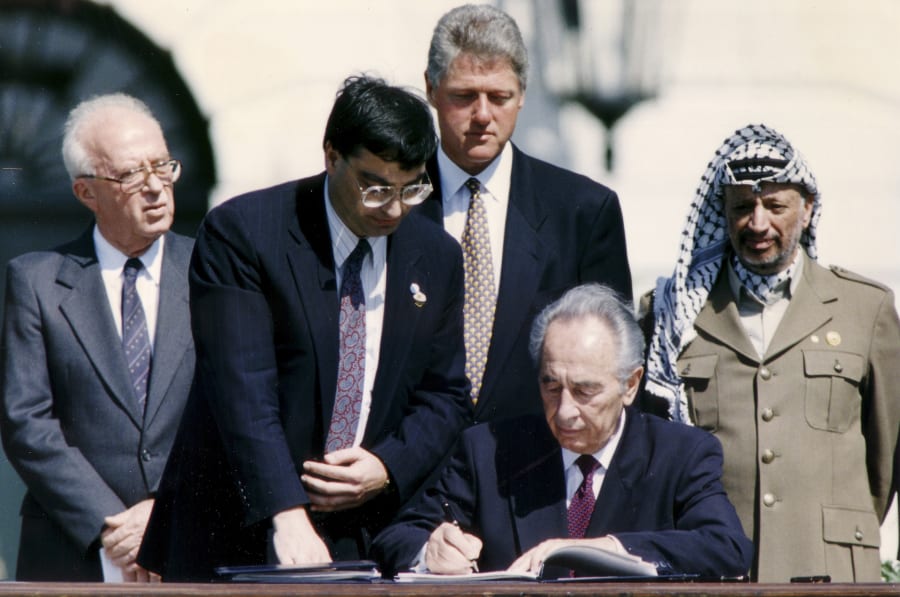Israel declassifies cabinet meeting protocols 30 years after Oslo Accords
16 of 18 ministers voted to approve

The protocols of the government meeting during which the historic Oslo Accords were approved, were published for the first time by the Israeli State Archives on Wednesday, exactly 30 years to the fateful day.
The accords between Israel and the Palestine Liberation Organization (PLO), which until then was treated by Israel as a hostile terrorist group, were meant to set up a framework leading to a final resolution of the Israeli-Palestinian conflict.
The first part of the accords was approved during the meeting on Aug. 30, 1993, and later signed in Washington, D.C., on Sept. 13 of that same year.
The Oslo I Accord, known as the 'Declaration of Principles on Interim Self-Government Arrangements' was meant to create a transitional Palestinian legislative body to govern the West Bank and Gaza Strip, which would then be empowered to sign a permanent peace agreement with Israel.
The complete set of protocols is 81 pages long, with parts of it remaining classified for reasons of state security and not to be published for another 20 to 60 years.
The declassified portion of the protocols, which until now was ‘Top Secret,’ reveals that 16 of the government’s 18 ministers voted to approve the accords.
Only then-Interior Minister Aryeh Deri, who was the leader of the ultra-Orthodox Shas party at the time, and Shimon Sheetrit, then-economy minister for the Labor Party, abstained from the vote.
The protocols show that the Israeli government approved of the accords despite significant skepticism and misgivings about their chances of success, as well as numerous security challenges.
Then-Prime Minister Yitzhak Rabin noted that he saw both positive and negative outcomes as possible but stressed that the agreement would have "reversibility."
Ehud Barak, the Israel Defense Forces chief-of-staff at the time, cautioned that the agreement had “more holes than Swiss cheese,” but was overruled by the government in the end.

The All Israel News Staff is a team of journalists in Israel.
You might also like to read this:
















